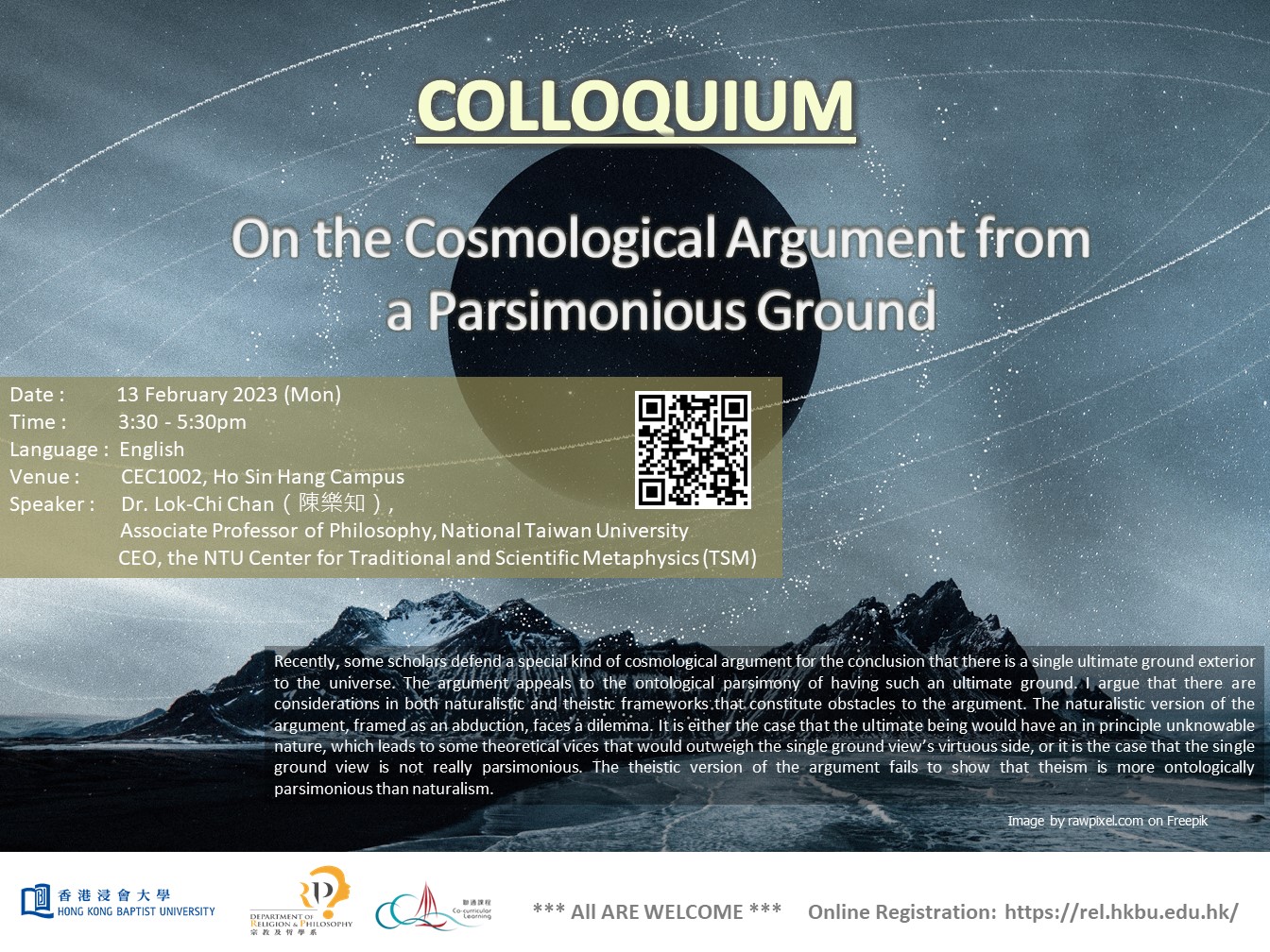COLLOQUIUM : On the Cosmological Argument from a Parsimonious Ground
Seminar | CCL22230453

Recently, some scholars defend a special kind of cosmological argument for the conclusion that there is a single ultimate ground exterior to the universe. The argument appeals to the ontological parsimony of having such an ultimate ground. I argue that there are considerations in both naturalistic and theistic frameworks that constitute obstacles to the argument. The naturalistic version of the argument, framed as an abduction, faces a dilemma. It is either the case that the ultimate being would have an in principle unknowable nature, which leads to some theoretical vices that would outweigh the single ground view’s virtuous side, or it is the case that the single ground view is not really parsimonious. The theistic version of the argument fails to show that theism is more ontologically parsimonious than naturalism.
Registration
Registration Through External Link